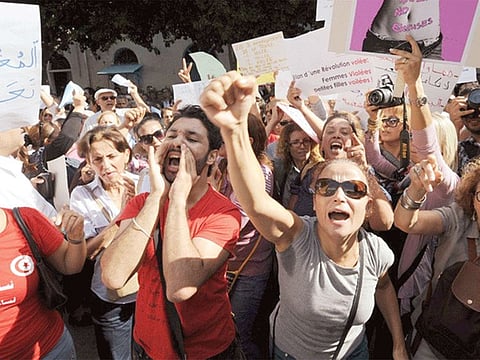Four rapes within 48 hours spark outrage in Tunisia
It was also found out that the perpetrators were addicts of the “pharaoh” drug.

Also In This Package
Abu Dhabi: Over the past 48 hours, Tunisia has witnessed four rapes including two gang-rapes that have sparked widespread anger amongst Tunisians. It was also found out that the perpetrators were addicts of the “pharaoh” drug. These tablets greatly affect the behavior of addicts, prompting them to commit heinous crimes, Tunisian media reported.
The rape of a 15-year-old girl by 10 people in the central province of Kairouan has infuriated the Tunisians, and many have called for the maximum penalties for the perpetrators.
The coastal governorate of Monastir also witnessed a similar incident, as a 21-year-old man lured a 15-year-old girl and brutally raped her and detained her for four days in a deserted house, where the victim confirmed that the accused had violated her and threatened to kill her. Police in Monastir arrested the criminal, who reportedly confessed that he was under the influence of drugs.
In another incident, three people were arrested for kidnapping an 18-year-old girl in Manouba Governorate before they took her to a deserted place and gang-raped her.
On the same day, a 25-year-old woman was subjected to sexual harassment and attempted rape by a 60-year-old man, who planned to kidnap her after he pretended to be a taxi driver and offered to drive her to her workplace in the Yasmine area south of the capital, Tunis. The woman became suspicious after he drove her to a deserted area, but she managed to escape and reported the incident to the police.
In 2017, Tunisian lawmakers passed a legislation aimed at eliminating violence against women. The law is far-reaching: Among its many stipulations it forbids physical, economic and psychological abuse against women and outlaws harassment in public. It also scrapped a loophole that allowed rapists to avoid jail by marrying their victims.
In a country where 53 per cent of women have experienced violence of some kind — significantly higher than the estimated global rate of 35 per cent — the law was a huge win for activists.









